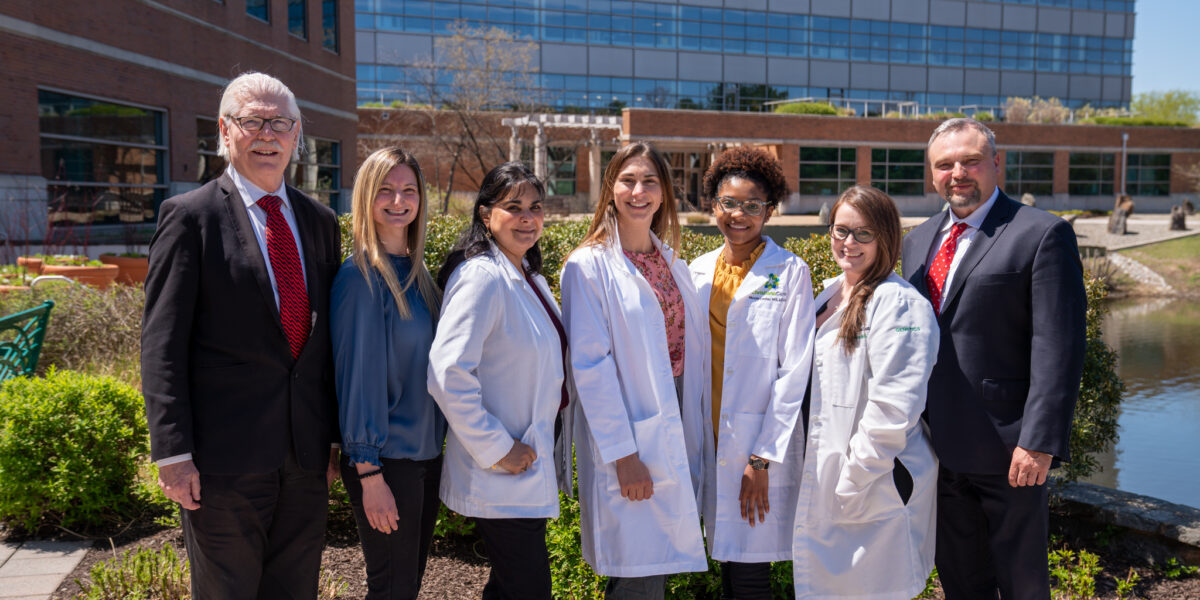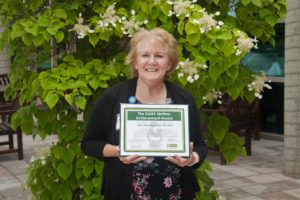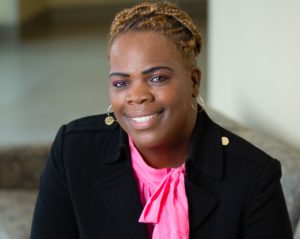What’s in your genes? ChristianaCare’s Center for Medical Genetics and Genomics, under the direction of Pawel Pomianowski, M.D., at the Helen F. Graham Cancer Center & Research Institute is leveraging what we know about the human genome and disease to change the way we predict, diagnose and treat cancer more precisely and personally than ever before.
To schedule an appointment at the Helen F. Graham Cancer Center & Research Institute, call 302-623-4500.
Within the Center, the Genetic Risk Assessment Program offers consultation, genetic testing and support for families who may have a hereditary risk for certain cancers as well as other diseases. The program is one of only three such statewide programs in the U.S. that documents cancer risks that run in families.
“At ChristianaCare, we are unique among many institutions with our focus on both clinical genetics and genomics to help guide the care of our patients,” said Pomianowski, who specializes in clinical genetics and internal medicine.
“This is a fundamentally different approach from other institutions in our area that are primary research based and where clinical genetics often takes a back seat.”
Finding out what’s in our genes
What is known about our genes at work and how they interact with each other and our environment is changing how some cancers are treated.
At the Graham Cancer Center, clinicians have next-generation sequencing capability (tumor profiling) to examine the non-inherited genetic characteristics of a patient’s tumor and to use this information to plan what treatment would work best.

Another layer of information can come from germline genetic testing. When appropriate, clinicians can examine germline gene changes, those inherited and passed down through generations, to help guide individualized treatment decisions.
“Next-generation sequencing technology allows us to look at individual rare variants or gene alterations that play a significant role in cancer development,” said Pomianowski.
“In this way we can design a specific cancer treatment plan for each individual patient, and also predict cancer risks for other members of the family who may still be cancer-free.”
For these family members, genetic counseling about cancer risk factors and appropriate interventions can help minimize the chances that they too might eventually develop disease.
“We can design a specific cancer treatment plan for each patient, and also predict cancer risks for other members of the family who may still be cancer-free.”
— Pawel Pomianowski, M.D.
The Center maintains a statewide High-Risk Familial Cancer Registry of some 13,988 individuals from Delaware and surrounding communities whose family histories in some cases extend back generations.
Patients who participate in the genetic counseling program can have their family history data entered into the registry to help scientists learn more about cancer patterns in our community and work toward new discoveries in cancer prevention, diagnosis and treatment.
The team is also building similar registries for cardiovascular and adult onset neurological diseases.
Pomianowski has more than 12 years of hospital and clinical practice experience that includes establishing one of only two genetic counseling and risk assessment programs for U.S. veterans on the East Coast.
“The Center for Medical Genetics and Genomics, under Pomianowski’s direction, is a key component of our comprehensive cancer program serving our community and our region,” said Nicholas Petrelli, M.D., Bank of America endowed medical director of the Helen F. Graham Cancer Center & Research Institute.
“Today, by integrating the science into individualized treatment planning, we are opening the door wider to more precisely targeted and potentially more effective therapies, even for some cancers where there are few current treatment options.”
Documenting Delaware’s unique genetic footprint
Beyond looking at panels of known disease associated genes, the team is working on developing an in-house genomics program where in the very near future, clinicians will be sequencing and interpreting the entire genome of an individual patient.
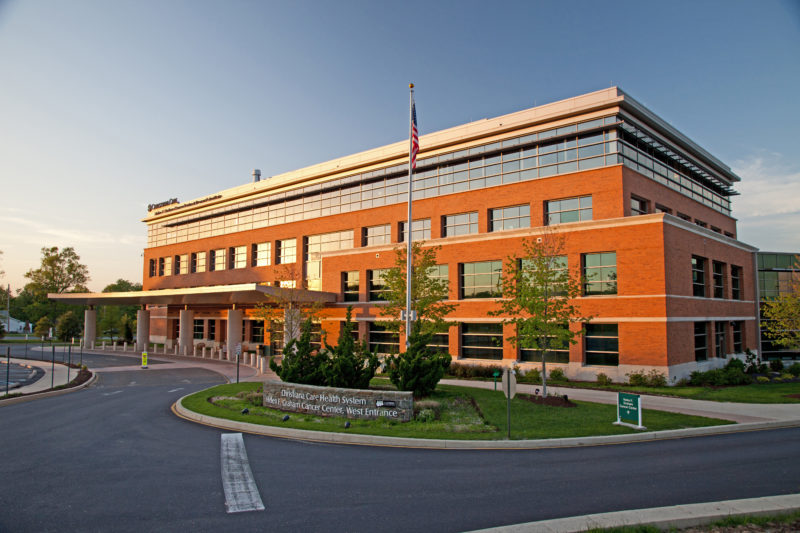
“The future of precision medicine,” Pomianowski said, “lies in our ability to read a patient’s entire set of genes, their genome, and to target how we care for that patient based on his or her own unique genomic makeup.
“This approach has shown clinical utility and financial viability at select institutions elsewhere in the country and would bring significant gains for our patients in Delaware and the region,” he said.
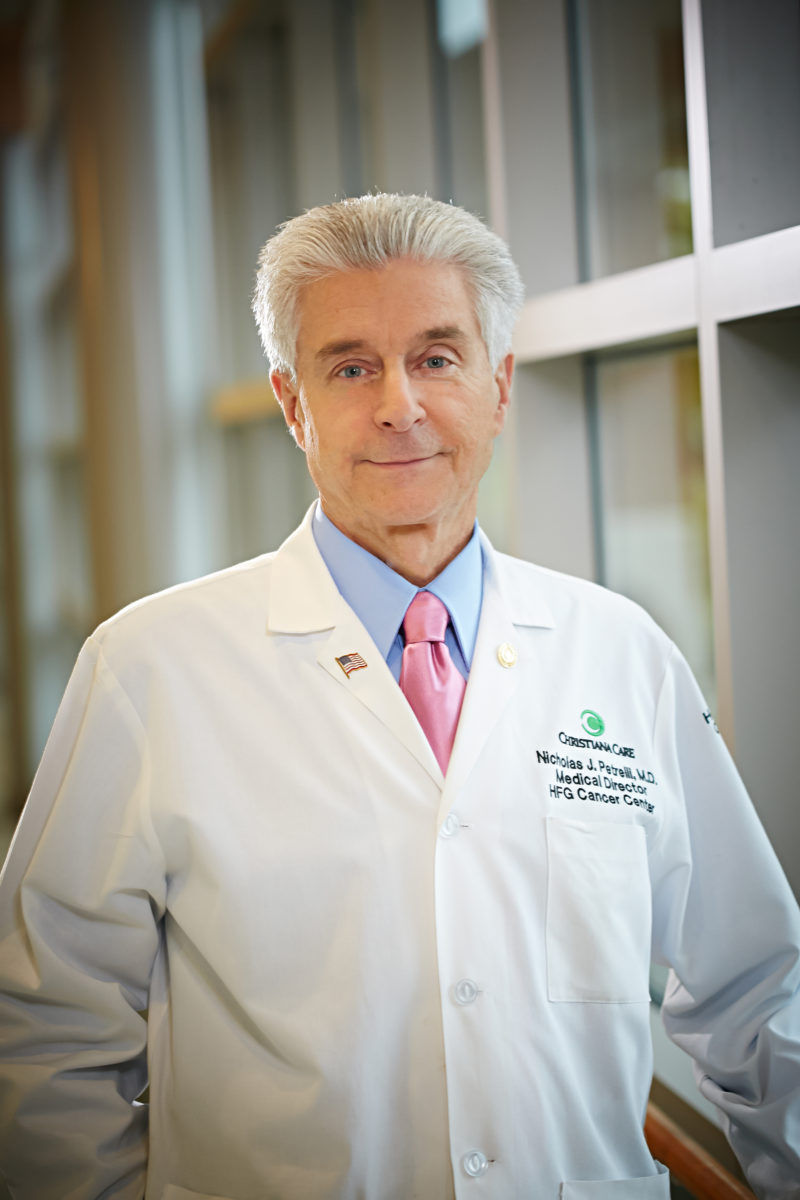
Whole genome sequencing would allow for relevant genes to be sequenced based on individual cases without limitations posed by what might be considered the “established gene panels” available commercially.
Pomianowski points out that whole genome sequencing would also allow geneticists to take another look at a person’s genome, perhaps stored as part of their electronic medical record, when new information becomes available and new disease-causing genes are identified.
The number of diseases known to have a genetic basis is increasing rapidly.
So too is knowledge of genomic variants or gene changes, that may occur at different rates within a population and that individually or collectively could affect a person’s risk for disease. This risk is tabulated as a person’s “polygenic risk score.”
“Having a whole genome sequencing program at our institution will allow us to interpret patient genomes for common variants with small effects that are the basis of polygenic risk scores,” Pomianowski said.
“These risk scores, although not ready for prime time yet, are right around the corner for more widespread use in both cancer and cardiovascular genetics.”
Some variants are rare in one region of the globe and are common in others. “An in-house genomic database would be a genetic map of ChristianaCare’s unique patient community,” he said.
Pharmacogenetics for more personalized medicine
Genomic profiling also offers clues to how a patient might respond to different drugs and which ones might be harmful.
“Not all medicines work the same or have the same response from every patient, particularly those who have undergone prior cancer treatments,” said Pomianowski.

“That is why at ChristianaCare, we are poised to implement a phamacogenetics program.
“Our plan is to have an onsite pharmacist who is trained to evaluate our patients based on their unique genomic profiles. This way, we can optimize the benefits of a prescribed drug while minimizing any negative or adverse side effects,” he said.
At the Graham Cancer Center, medical geneticists and certified genetic counselors work collaboratively with multidisciplinary teams of experts (oncologists, cardiologists, radiologists, among others) throughout the health system.
One example is a multidisciplinary clinic where specialists collaborate to improve outcomes for patients with amyloidosis. This is a rare condition that occurs when an abnormal protein, called the amyloid protein, builds up and affects normal organ function.
Some forms of this disease are hereditary. Successful treatment is heavily dependent on accurate characterization (including genetics) of the amyloid protein.
The Center continues to expand genetic counseling and risk assessment services in cancer genetics while transitioning to an essential service across many specialties including hereditary cardiovascular disease, adult onset and childhood onset hereditary syndromes, genetic neurological disease and prenatal risk assessment and counseling.
“Nowadays, every oncologist should be using the tools available through medical genetics and genomics, otherwise they are not optimally helping their patients,” said Pomianowski.
“However, these tools are not being used as well in other disease areas where medical evidence has shown they have potential benefit. At ChristianaCare we are working to change that.”
